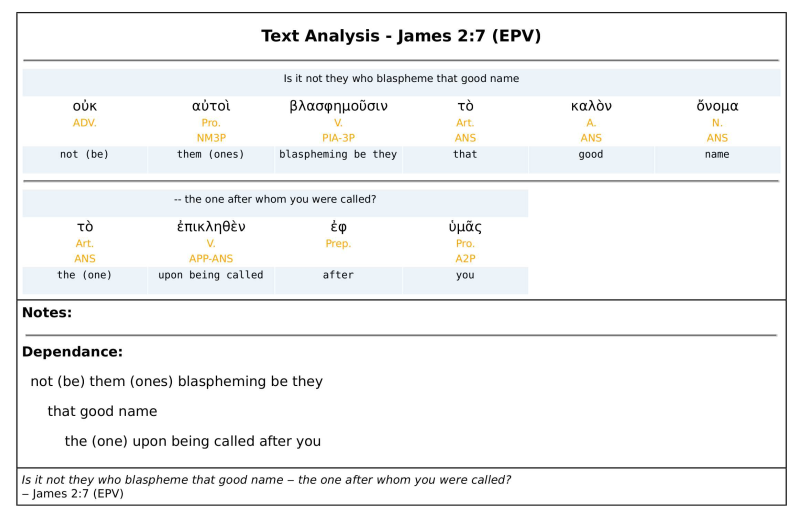As is so often the case, this is an allusion to the LXX:
Brenton Isa 43:7 even all who are called by my name: for I have
prepared him for my glory, and I have formed him, and have made him:
LXX Isaiah 43:7 πάντας ὅσοι ἐπικέκληνται τῷ ὀνόματί μου ἐν γὰρ τῇ
δόξῃ μου κατεσκεύασα αὐτὸν καὶ ἔπλασα καὶ ἐποίησα αὐτόν
Notice the context of the sonship of the Jews:
Isa 43:6 I will say to the north, Bring; and to the south, Keep not
back; bring my sons from the land afar off, and my daughters
from the ends of the earth; Isa 43:7 even all who are called by my
name: for I have prepared him for my glory, and I have formed him,
and have made him:
I concur with Clarke:
...To be called by the name of anyone, is synonymous with being
regarded as his son, since a son bears the name of his father (see
Isa_44:5; Isa_48:1). The expression, therefore, means here, all who
were regarded as the children of God; and the promise is, that all
such should be re-gathered to their own land...
Update
Paul, like James understands the believers to be part of God's family which spans heaven and earth:
Eph 3:14 For this cause I bow my knees unto [God,] the Father of our
Lord Jesus Christ, Eph 3:15 Of whom the whole family in heaven and
earth is named,
Barnes has some helpful notes on this passage, again tying the name-bearing to being family:
Is named - This means substantially the same as is. They are all of
one family. They all have one father, and are all of one community.
The expression is taken from the custom in a family, where all bear
the name of the “head” of the family; and the meaning is, that all in
heaven and on earth are united under one head, and constitute one
community. It does not mean that all are “called” by the same name, or
that the name “Christian” is given to the angels, but that they all
pertain to the same community, and constitute the same great and
glorious brotherhood. Part are in heaven, near his throne; part in
distant worlds; part are angels of light; part redeemed and happy
spirits; part are in the church on earth; but they are all united as
one family, and have one head and Father. This glorious family will
yet be gathered together in heaven, and will encompass the throne of
their common Father rejoicing.

